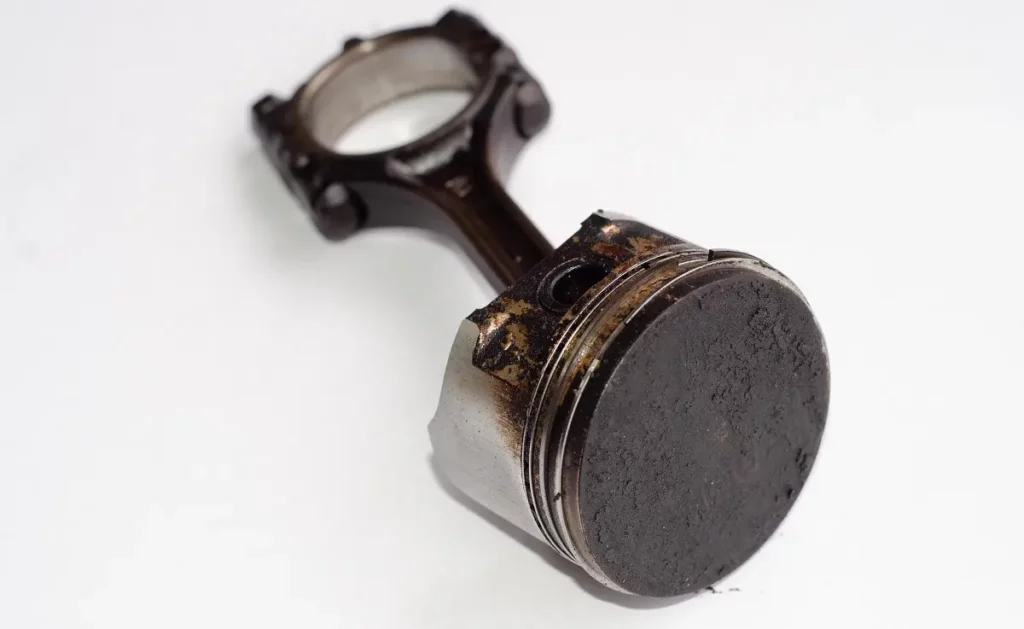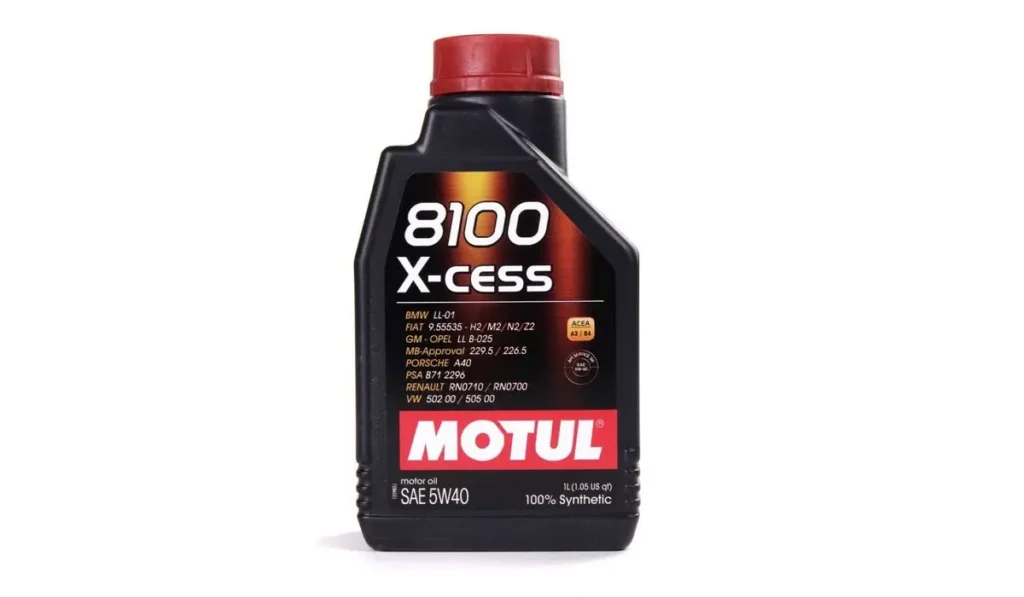The EA888 engine series has earned a remarkable reputation in the automotive industry, powering numerous Volkswagen Group vehicles with its impressive performance and efficiency. These engines have become a favorite among car enthusiasts and everyday drivers alike. However, amidst their popularity, a recurring issue has surfaced — oil consumption. In this guide, we delve into the oil consumption problem that affects the 2nd generation models within the EA888 engine series.
Oil consumption problems can lead to a range of complications, from increased maintenance costs to severe engine damage if left unattended. Understanding the causes of oil consumption in the EA888 engines and exploring the solutions provided by the manufacturer are crucial for owners facing this issue.

Understanding the EA888 Engine Series
The EA888 engine series, developed by Volkswagen Group, stands as a testament to engineering excellence and innovation. These engines have been widely adopted across various Volkswagen andAudi models, gaining recognition for their exceptional performance and fuel efficiency.
The EA888 engine series comprises a range of gasoline engines, including both four-cylinder and six-cylinder variants. These engines feature direct fuel injection, turbocharging technology, and advanced engine management systems, ensuring optimal power delivery and improved fuel economy. With their compact design and lightweight construction, the EA888 engines offer a favorable power-to-weight ratio, contributing to the overall driving experience.
Over the years, the EA888 engine series has undergone several iterations and advancements. Each iteration brings enhancements in terms of power output, torque, and overall efficiency. From the initial introduction of the EA888 engine in 2008 to the latest iterations, Volkswagen Group has continuously refined and optimized these engines to meet evolving performance and environmental standards.
Notably, the EA888 engines have gained popularity in sports-oriented models, offering exhilarating acceleration and responsive performance. These engines have found their way into iconic vehicles like the Volkswagen Golf GTI, Audi A4, among others, captivating automotive enthusiasts worldwide.
As we explore the oil consumption issue within the EA888 engine series, it is essential to recognize the significance of these engines in the automotive landscape. Their widespread adoption and exceptional performance make addressing the oil consumption issue crucial for owners and enthusiasts alike.
The Oil Consumption Issue
The oil consumption issue has emerged as a concern with the introduction of the second generation EA888 engines. This issue manifests as an excessive consumption of engine oil, requiring frequent top-ups and potentially leading to low oil levels over time.
One of the primary symptoms owners may encounter is the need to add oil between regular oil change intervals. While some oil consumption is normal for any engine, many 2nd generation EA888 engines went way beyond that. In fact, owners have reported oil consumption of more than a quart of oil per 1000 miles.
The consequences of excessive oil consumption should not be underestimated. Insufficient oil levels can lead to inadequate lubrication, potentially resulting in accelerated wear and tear of engine components. In severe cases, it may even lead to catastrophic engine failure, necessitating costly repairs or engine replacements.
How do you fix this issue? By replacing the piston rings with the newer, updated ones. Unfortunately, that is the only solution available for EA888 engines that were affected the most. Regular oil changes, use of quality engine oil and oil filters can postpone any serious damage.
Causes of Oil Consumption in EA888 Engines

Excessive oil consumption in 2nd gen EA888 engines can be attributed to two significant factors — piston ring design and the crankcase ventilation system. Let’s delve deeper into each of these factors:
Piston Ring Design
The piston rings in an engine play a crucial role in maintaining proper oil control. They create a seal between the piston and the cylinder wall, preventing oil from entering the combustion chamber while ensuring efficient lubrication. However, in the 2nd generation of the EA888 engine series, the piston ring design had certain shortcomings that contribute to increased oil consumption.
- Wear — Over time, piston rings can experience wear due to the high temperatures and pressures they endure during engine operation. This wear can compromise their ability to create an effective seal, resulting in oil consumption. If the piston rings become worn or damaged, they may allow oil to pass into the combustion chamber, leading to higher oil consumption.
- Improper Installation — During engine assembly, proper installation of piston rings is crucial to ensure their optimal performance. If the piston rings are not installed correctly, they may not provide a tight seal, allowing oil to bypass and contribute to oil consumption.
- Design Shortcomings — The design of the piston rings themselves can also play a role in oil consumption. Certain iterations of the EA888 engine series may have had piston ring designs that were not optimized for controlling oil consumption. This could be due to various factors, including manufacturing processes, material choices, or engineering considerations.
Addressing the piston ring design issue typically involves implementing updated piston ring designs that address the shortcomings of previous iterations. The new designs aim to improve the sealing properties of the rings, minimize oil bypass, and reduce oil consumption in affected EA888 engines.
Crankcase Ventilation System
The crankcase ventilation system is responsible for regulating the pressure and removing gases, including blow-by gases, from the engine crankcase. This system helps maintain a controlled environment within the engine and prevents pressure build-up that can adversely affect engine performance. However, issues with the crankcase ventilation system can lead to increased oil consumption in certain EA888 engine models.
- PCV Valve — The Positive Crankcase Ventilation (PCV) valve is a critical component of the crankcase ventilation system. It ensures the proper flow of gases and prevents excessive pressure buildup in the crankcase. If the PCV valve malfunctions, becomes clogged, or fails to operate correctly, it can disrupt the balance of pressure, leading to increased oil consumption.
- Clogged Ventilation System — Over time, the crankcase ventilation system can accumulate debris, sludge, or carbon deposits, resulting in restricted airflow. A clogged ventilation system hinders the proper removal of blow-by gases and increases crankcase pressure, which can contribute to higher oil consumption.
Addressing the crankcase ventilation system issue typically involves inspecting and cleaning the system, ensuring the PCV valve is functioning correctly, and removing any obstructions or deposits that may impede the proper flow of gases.
Manufacturer’s Response and Solutions

As expected, Volkswagen has initially refused to admit that there is anything wrong with their engines. However, the overwhelming pressure from customers all around the world has forced them to finally take action. To address the oil consumption issue in the EA888 engine series, the manufacturer, Volkswagen Group, has taken steps to provide solutions and support to affected owners.
- Recalls and Service Campaigns —In response to the oil consumption issue, Volkswagen Group has initiated recalls and service campaigns for specific EA888 engine models. These campaigns aim to rectify the underlying causes of excessive oil consumption and provide necessary repairs or replacements to affected components. It is important for owners to check with their authorized service centers or dealerships to determine if their specific vehicle is included in any recalls or service campaigns.
- Updated Piston Rings — As part of the solution, Volkswagen Group has developed updated piston rings designed to improve oil control and reduce oil consumption. These new piston rings feature enhanced sealing properties and address the shortcomings of previous designs, providing a more effective solution to the oil consumption issue.
- Revised Crankcase Ventilation Systems — The manufacturer has also made revisions to the crankcase ventilation systems in certain EA888 engine models. These revisions aim to optimize the functionality of the system, ensuring proper pressure regulation and reducing the potential for increased oil consumption.
Keep Your EA888 Engine Running with eEuroparts.com!
In conclusion, the oil consumption issue in certain models of the EA888 engine series can be attributed to piston ring design and the crankcase ventilation system. Volkswagen Group has responded with recalls, updated designs, and revised ventilation systems. Owners, on the other hand, can delay most of these issues through proper maintenance.
Use high quality lubricants and replace your PCV system components as soon as you spot an issue. Here at eEuroparts.com, we offer a wide range of high-quality parts and lubricants for your EA888 engine. Head over to our store, select your vehicle, and you’ll find everything you need!






My daughter’s 2013 AllRoad bagan using a quart of oil ever fuel tank fill up! I pulled the oil fouled plugs, drained the crankcase and poured Berryman’s B-12 into the cylinders. I left the drain plug out and caught the B-12 in a clean oil drain pan. After 6 or 7 bottles it finally started coming out almost clear. I finished the oil change and installed new spark plugs. She now gets over 3000 miles before having to add a quart of oil.